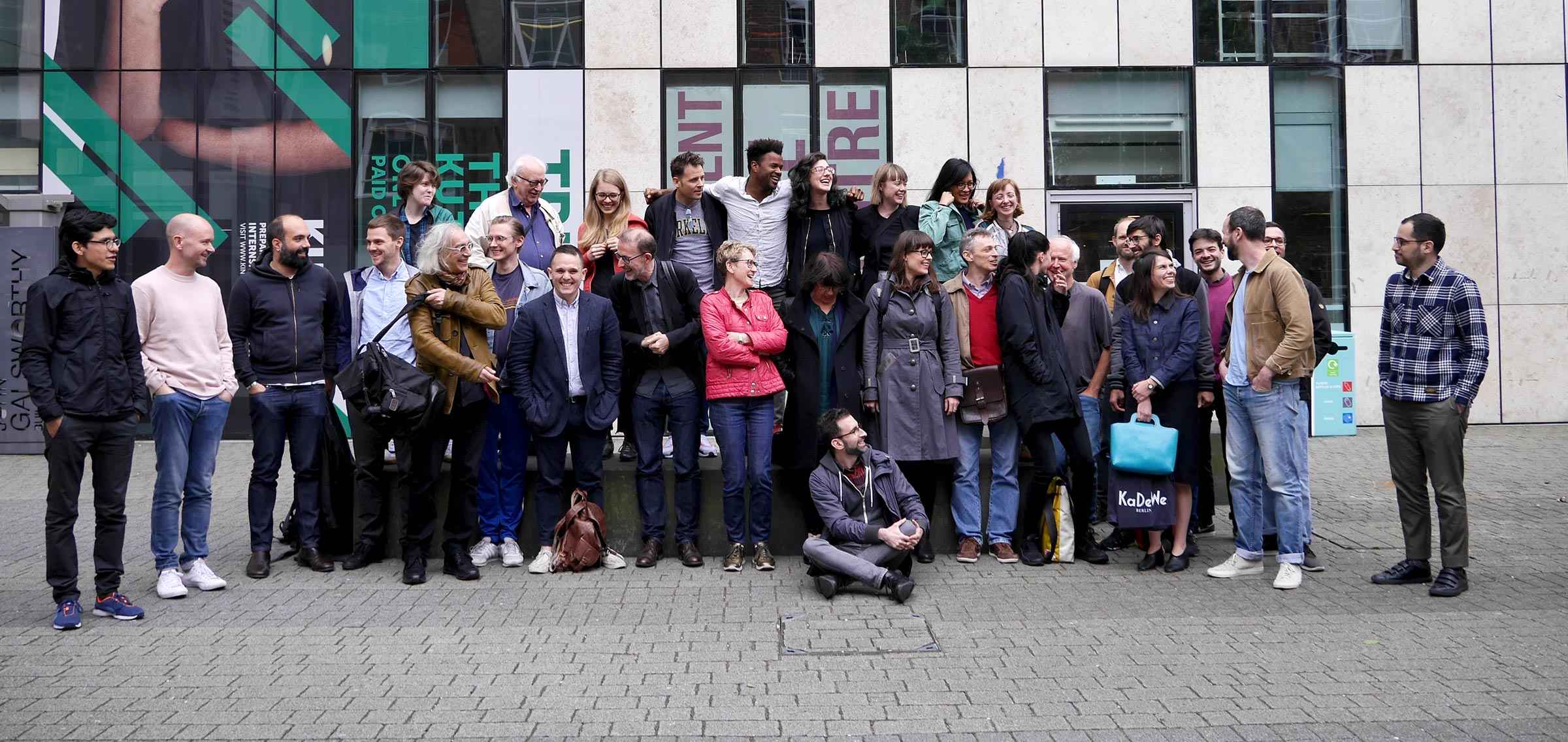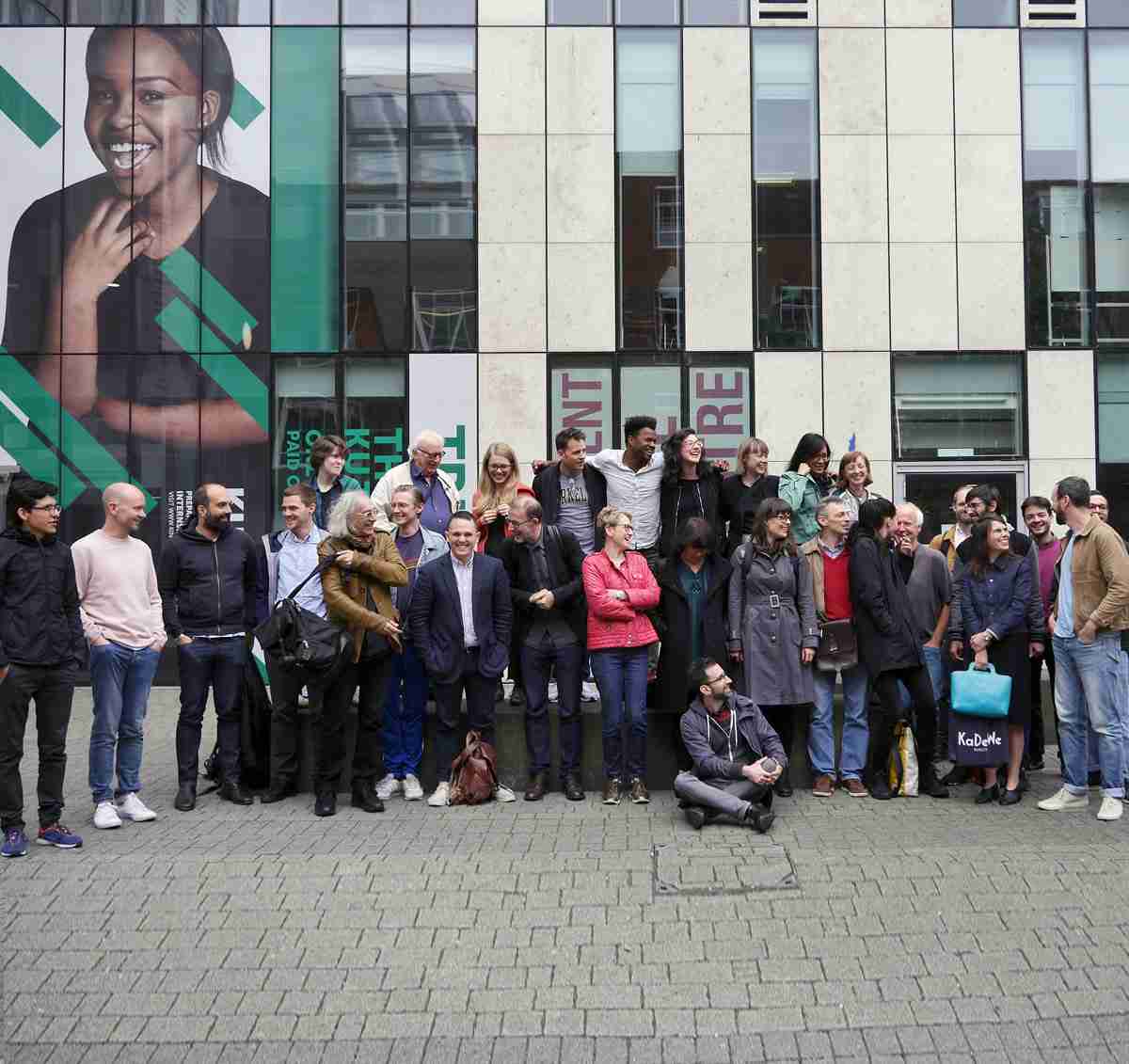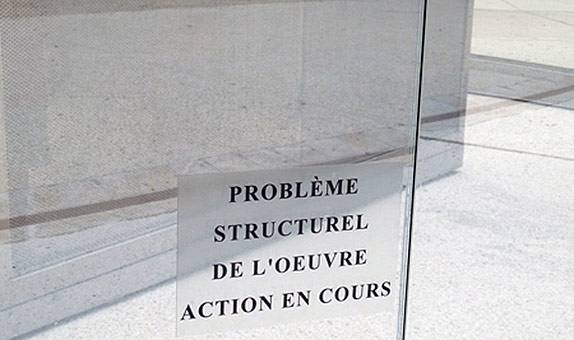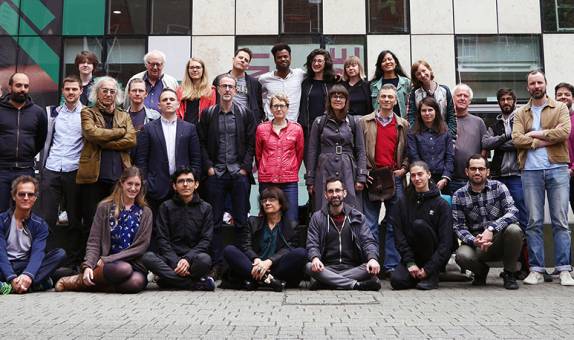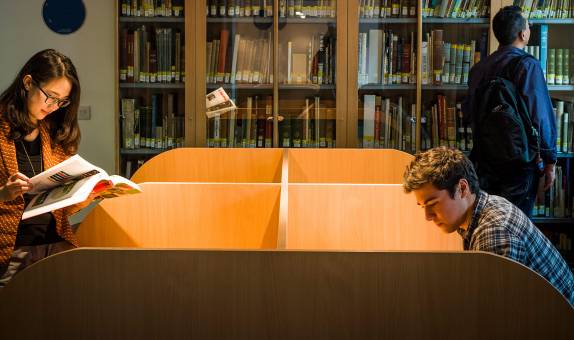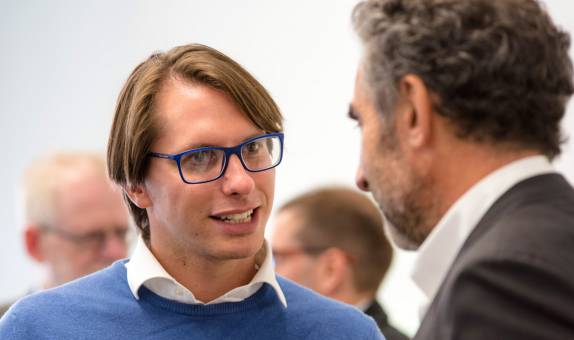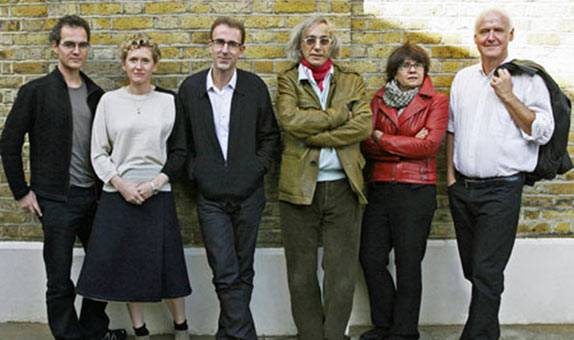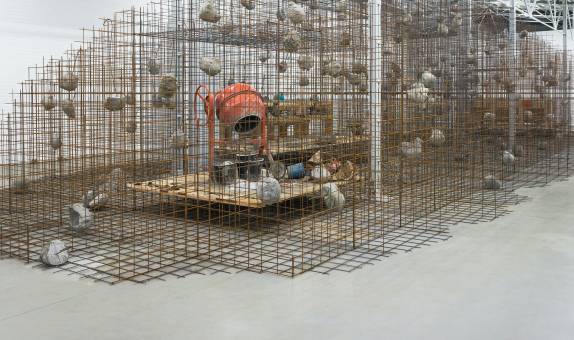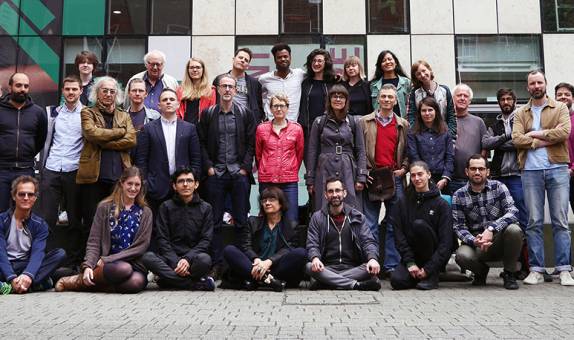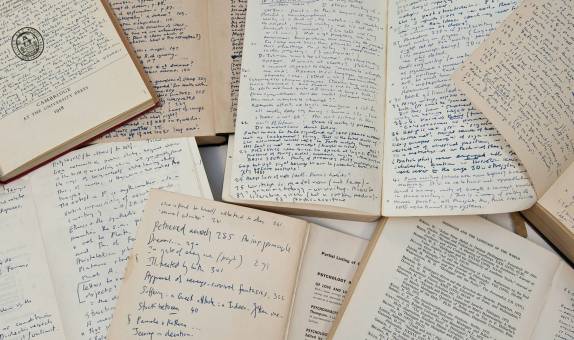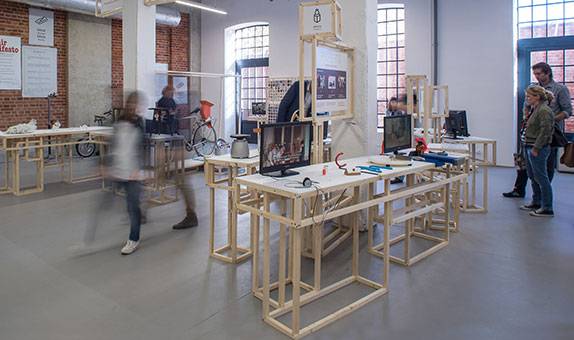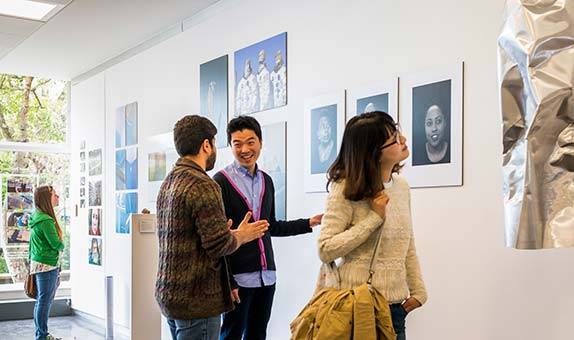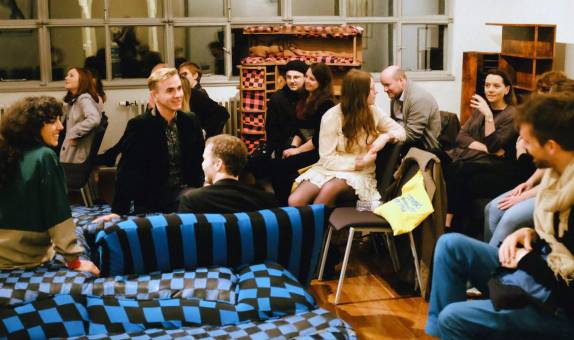Research projects in CRMEP
Sex Division in Natural History – Leverhulme Trust, 2018–2021
Leverhulme Major Research Fellowship: Professor Stella Sandford
This project is an investigation of the place and the status of the category of 'sex' (as distinct from 'gender') in the systems and schemes of classification in natural history from the late 16th century onwards. It aims to understand and explain how and why 'sex' could be both fundamental to these systems and schemes and yet apparently invisible to critical attention; and to investigate whether and how the presumptions concerning the category of sex in classical natural history are relevant to our understanding of the category of sex with which humans categorise themselves today. One of its hypotheses is that the history of the 'sexual theory' in botany is not the discovery of what is now treated as an obvious fact, but rather a history of significant conceptual change, or the major site of the development of a generic concept of sex.
The research proposes, further, that there is an important link between the fact that the first consistent use of the idea of the sexual aspect of fructification in a system of the classification of plants was by the botanist and natural historian Linnaeus who also first dared, in the Western Christian context, to include human beings in the total system of nature. In other words, the hypothesis is that the central but untheorised, generic category of sex plays an important role in facilitating this shift in classificatory scope. As this 'naturalization of the human being' is one of the historical conditions for the emergence of the racial categorisation of peoples, the relation between the generic concept of sex and the concept of 'race' driving racial thinking will also be investigated, via an analysis of the use of a trans-linguistic constellation of terms: genus, genre and Geschlecht.
Blanqui and Political Will – AHRC, 2015–2017
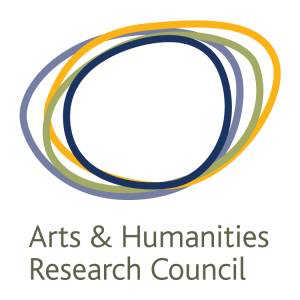
- AHRC Research Leadership Fellowship: Professor Peter Hallward
- Postdoctoral Researcher: Dr Philippe Le Goff
Louis-Auguste Blanqui (1805-1881) was perhaps the single most important figure in nineteenth-century French revolutionary politics, and he played a role in all of the great upheavals that punctuated his life (1830, 1848 and 1870–71). He was certainly the most forceful and controversial of those who sought to renew and then to transform the radical Jacobin tradition that drew its inspiration from Rousseau's conception of 'a free society of equals', a society sustained by collective participation in a general will to posit, debate and accomplish goals consistent with the common good. At odds with followers of Proudhon on the one hand and of Marx on the other, while Blanqui commanded unrivalled authority in French revolutionary circles during parts of his own lifetime he was quickly forgotten after his death. There has been little searching engagement with his work or legacy since the middle of the 20th century.
This 18-month AHRC-funded project was designed to deliver a new, archive-based assessment of Blanqui's political thought. It aimed both to address a symptomatic gap in the recent history of political ideas and to buttress a wider intervention in ongoing debates about the status of the political subject or actor, understood as a conscious, deliberate agent capable of decisive action. More than any of his contemporaries, Blanqui insisted on the relative primacy of the actors' own initiative and determination, and on their variable capacity to overcome the many obstacles that might block the realisation of their collective purpose. Reassessment of Blanqui's legacy thus offers an especially valuable opportunity to reconsider this broadly 'psycho-political' dimension of political action, a dimension dismissed or neglected by many of today's most influential critical theorists and European philosophers.
As well as stimulate reflection on this general theoretical question, the project produced a substantial website, The Blanqui Archive with reproductions of all Blanqui's published works and a complete set of scans of his manuscripts held by the Bibliothèque Nationale in Paris, along with a chronology, a bibliography and a wide selection of texts on and around Blanqui. The project also enabled the preparation of a wide-ranging English-language anthology of Blanqui's writings, a conference on Blanqui and a further conference on political will more generally, a compilation of essays on Blanqui's legacy, and a monograph on his political philosophy (Peter Hallward, Blanqui and Political Will, Verso, Spring 2018).
The invention of consciousness: A French interpretation of John Locke
- AHRC Fellowship: Professor Stella Sandford

This five-month AHRC-funded project will produce a critical English-language edition of Étienne Balibar's 1998 Identité et différence: L'invention de la conscience (Seuil, Paris): a study of Book II, Chapter XXVII ('Of Identity and Diversity') of John Locke's Essay Concerning Human Understanding (1694) - the chapter containing Locke's celebrated theory of personal identity. The AHRC Fellowship has been awarded to Dr Stella Sandford to complete the editing of the English edition and to write an accompanying critical essay. As well as offering a précis of Balibar's ground-breaking interpretation of Locke in Identité et différence, the accompanying essay will address three questions that are only implicit in Balibar's work itself. First, what is the significance of Balibar's interpretation of Locke for the largely Anglophone analytical discussion of the issue of personal identity in Locke's Essay Concerning Human Understanding? Second, what is the significance of this interpretation for the 'continental' history of the philosophy of 'the subject'? And third, following on from the previous question, what is the historico-political significance of Locke's theory of personal identity? The aim is to highlight the originality of Balibar's interpretation of Locke in the context of the Anglophone analytical literature on personal identity, and to prompt a reconsideration of the place of Locke's Essay for the self-understanding of the tradition of modern European philosophy.
The edition was published by Verso in 2013, with a translation of Balibar's essay by Warren Montag.
Transdisciplinarity and the humanities
Problems, methods, histories, concepts

- Principal Investigator: Professor Peter Osborne
- Co-Investigators: Professor Eric Alliez, Professor Stella Sandford
Transdisciplinarity and the Humanities was a two-year research project (1 September 2011 - 31 August 2013) funded by the AHRC under its 'speculative' scheme. It consisted of a series of 4 two-day international workshops and an international conference, which led to series of publications, proposed as special sections or special issues of journals.
Cahiers pour l'analyse
Concept and form: The Cahiers pour l'Analyse and contemporary French thought
 From 2006 to 2009, members of the CRMEP worked on a three-year AHRC-funded research project on the French philosophical journal, the Cahiers pour l'Analyse. Edited by a small group of Louis Althusser's students at the Ecole Normale Supérieure in Paris, the Cahiers pour l'Analyse appeared in ten volumes between 1966 and 1969 – arguably the most fertile and productive years in French philosophy during the whole of the 20th century.
From 2006 to 2009, members of the CRMEP worked on a three-year AHRC-funded research project on the French philosophical journal, the Cahiers pour l'Analyse. Edited by a small group of Louis Althusser's students at the Ecole Normale Supérieure in Paris, the Cahiers pour l'Analyse appeared in ten volumes between 1966 and 1969 – arguably the most fertile and productive years in French philosophy during the whole of the 20th century.
The main project output is a full electronic edition of the original French texts in both HTML and facsimile PDF versions, together with detailed commentaries on each article, recent interviews with members of the original editorial board, and substantial entries on the main concepts and authors at issue in the journal.
Other components of the research project included an international conference on the Cahiers and its legacy, held at Middlesex University on 21–22 May 2009, and preparation of two edited volumes on the Cahiers, entitled Concept and Form. These volumes are forthcoming from Verso in 2011: the first includes English translations of a selection of texts published in the Cahiers, the second is a collection of newly-commissioned essays on the journal and translated extracts of interviews with members of the editorial board.
